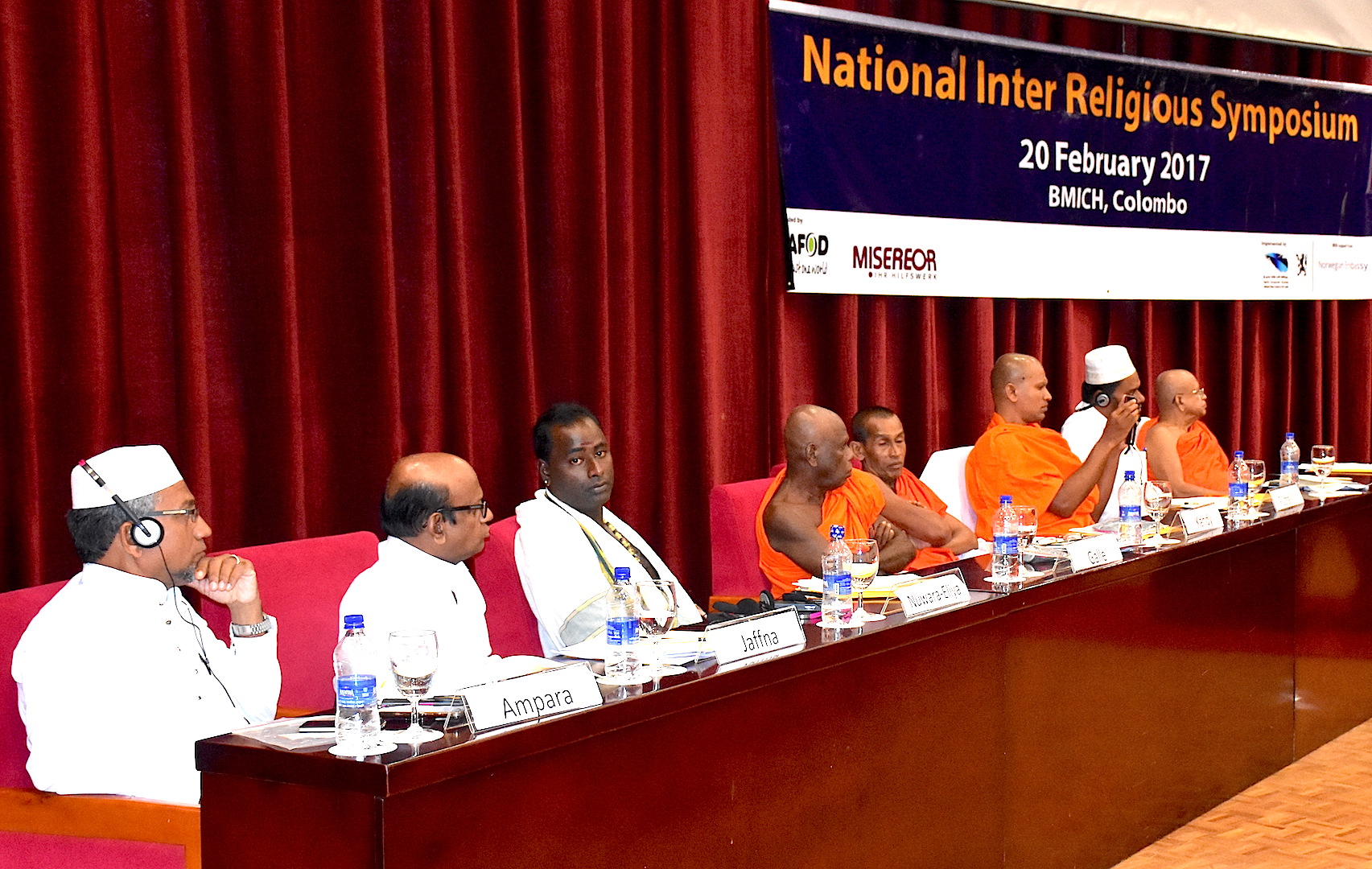About 360 religious leaders, civil society activists and government officials attended a National Inter Religious Symposium organised by the National Peace Council under its project Reconciling Inter Religious and Inter Ethnic Differences (RIID). The project was supported by USAID/SPICE and CAFOD.
Addressing the symposium, Ministry of National Co-existence Dialogue and Official Languages Mano Ganesan said coexistence meant different communities should keep their identities while understanding their differences. He stressed the need to take dialogue and discussions to the grass roots so that people could participate in the reconciliation process.
Former President and Chairperson of the Office for National Unity and Reconciliation Chandrika Kumaratunge said that reconciliation would not be successful without relationships between the religions in the country.
She commended NPC for working to bring together religious leaders to work together. “All organisation for reconciliation must get together and work on a long term basis,” she said, pointing out that most politicians were opportunists who had forgotten the importance of solving problems.
She urged the government to carry out its promise to formulate a new Constitution, adding that it should go beyond the 13th amendment, which “wasn’t sufficient.”
Another important issue, Mrs Kumaratunge said, was missing persons. Relatives of those who had disappeared must be given answers by the security forces. If not, they would always go on searching.
Mission Director of USAID Dr Andrew Sisson thanked NPC for its valuable work to advance peace and reconciliation and added that USAID was glad to support a project that had created an impressive network for communities to build bridges.
“Bringing peace is still work in progress and it is challenging…We applaud steps taken by the government and civil society to engage the public in reforms,” he said, adding that every community had an important role to play in bringing peace, reconciliation and national identity.
He urged the participants to keep sharing lessons learnt and experiences and to keep pressuring national leaders to promote peace and reconciliation.
Norway’s Charge d’Affairs Knut Nyflot pointed out that religious leaders could solve problems before they escalated and spread. They could influence thinking and attitudes of people.
“The Norwegian government values people’s participation in government and supports NPC’s work in bringing people together,” he added.
A total of 18 District Inter Religious Committees (DIRCs) comprising religious, civil organizations and community leaders have been established in the districts of Kalutara, Galle, Matara, Hambantota, Kandy, Nuwara Eliya, Puttalam, Kilinochchi, Kurunegala, Jaffna, Mannar, Mullaitivu, Trincomalee, Batticaloa, Ampara, Polonnaruwa, Anuradhapura, Ratnapura and Badulla.
The major task of the DIRCs is to strengthen reconciliation building action among the various religious and ethnic communities based on the transitional justice process. Other donors contributing to the inter religious activities of the DIRCs are Misereor, the Asia Foundation and the British High Commission, with Norway providing core support to NPC. They also support civil society in the reconciliation building process at grass root level through intervening to reduce inter ethnic and inter religious unrest and conflicts.

